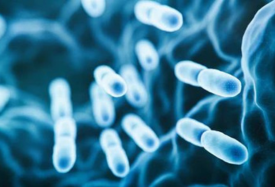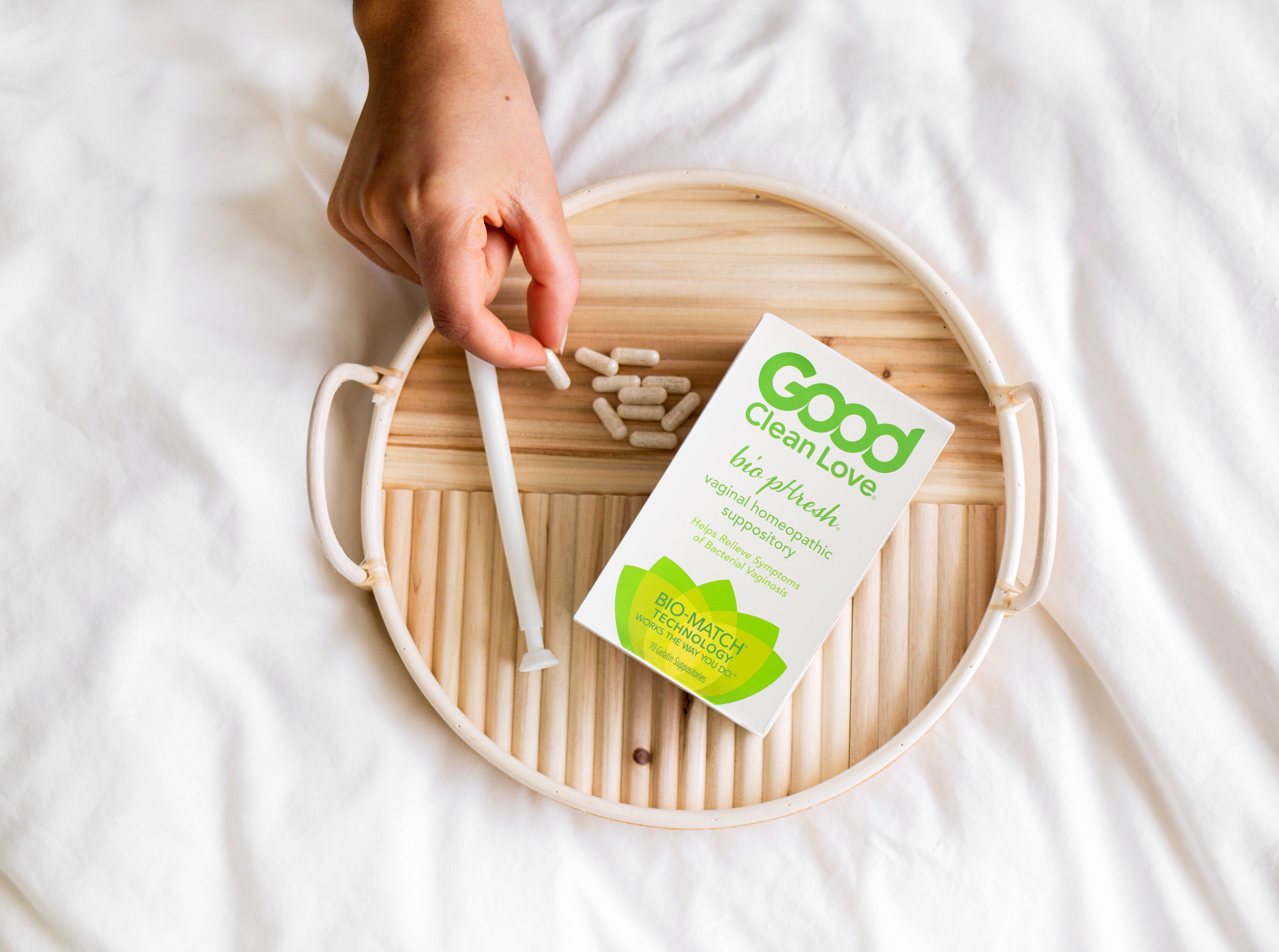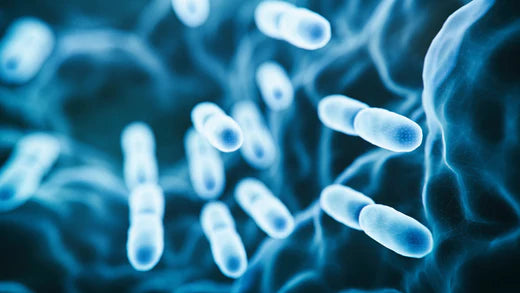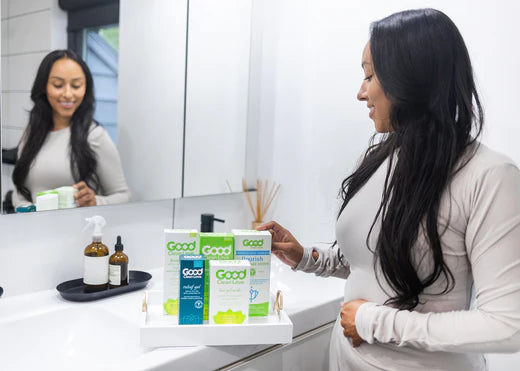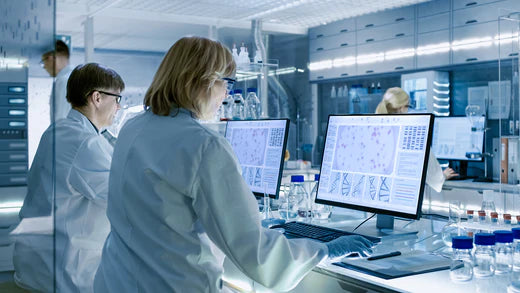If you find that your abdomen hurts after sex, you’re not alone. According to the American College of Obstetricians and Gynecologists (ACOG), around 75% of women experience painful intercourse at one point or another. This can happen for a variety of reasons and the pain you’re feeling even has a name. In medical circles, it’s called dyspareunia which comes from early Greek meaning “difficulty mating.”
Pain during sex has been recorded historically since the Egyptian scrolls — so don’t worry, this isn’t the first time this has happened. While pain after sex is very common, it’s suspected that it’s underreported because women and doctors don’t often freely discuss sexual activity during regular appointments. Women may also fear mentioning issues with pain with sex because they may feel ashamed. It’s also important to note that both men and women can experience pain after sex. And, although it’s easy to confuse pelvic pain with stomach pain, pain with sex is normally associated more with vaginal or pelvic pain than with actual stomach pain.
Can Sperm Cause Pain After Sex?
Yes – according to a study out of the University of Cincinnati, it is possible for women to be allergic to their partner’s sperm (or sperm in general). “Seminal plasma hypersensitivity” affects approximately 40,000 women in the United States alone. However, having an actual, medically diagnosed allergy to sperm is relatively rare.

Something else that could be happening is that you are noticing your body react to the hormone prostaglandin, which is highly present in sperm. Prostaglandin can act as an irritant to the uterus, causing it to contract and then potentially causing a bit of stomach pain after sex or even causing you to experience cramps after your partner ejaculates.
But sperm isn’t the only possible culprit — there are myriad other reasons why you might be experiencing pelvic pain after sex.
Why Many Women Have Pain After Sex
Earlier, we cited a statistic from the American College of Gynecology that up to 75% of women experience pain with sex. Called dyspareunia, this can strike immediately upon penetration, during sex, or even shortly afterward. Some experience pain with sex at entry, while others may feel it deeply during sex, or might even feel it linger after the cessation of intercourse.
Common symptoms associated with dyspareunia include:
- Pain with intercourse that occurs at the vaginal opening or deep in the pelvis
- Localized or distinct pain
- An aching, burning, throbbing or ripping sensation
You may also be experiencing dysorgasmia, also known as pain with orgasm. This can affect both men and women. Some symptoms to look out for include abdominal pain or abdominal or pelvic cramps during or after sex. Let’s look at some other reasons why you might be experiencing pain after sex.
Have You Had an IUD Inserted?
If you’re experiencing cramps after sex or upper stomach pain after being sexually active, some of the most likely causes include IUDs, pregnancy, or ovulation/periods. IUDs can cause cramps after sex for a few weeks following insertion. Women who have recently gotten IUDs can get cramps for a few weeks after placement regardless of whether they’re having sex or not, but are more likely to get cramps after sex for a few weeks once they decide to be sexually active again.

If you’ve recently had an IUD inserted, then experiencing some cramps after sex is most likely normal. However, if they persist, contact a healthcare provider.
Are You Pregnant?
Pregnant women can also get cramping after sex. Cramping after sex can be an indication of early pregnancy, but is also quite common in the third trimester since sex can cause contractions of the womb, which lead to cramps.
According to What to Expect, “cramping or painful twinges during or after orgasm in a normal, low-risk pregnancy are likely caused by increased blood flow to your abdominal area, as well as natural changes that make your cervix more sensitive.”

In addition, if you are trying to conceive (TTC) and you experience cramps like those you get around your period, you could be experiencing implantation. This is when the embryo adheres to the wall of the uterus. Women who do feel implantation describe the sensation as pricking, pulling, or a tingling feeling which can help differentiate it from menstrual cramps.
Are You on Your Period?
Due to the uterine contractions that occur during ovulation or during your period, it is possible to have cramps during or even after having sex. For some women, it feels good to be intimate and to orgasm during these times of the month, but even with the release of orgasm, there is still a possibility that you might experience cramps after orgasm.
Other Reasons for Pain After Sex
Some other reasons that you might be experiencing stomach pain after sex include vaginal dryness, endometriosis, ovarian or pelvic cysts, vaginal infections, pelvic inflammatory disease, fibroids, sexually transmitted infections, a tilted uterus, and certain sexual positions that might cause deep penetration. Below, we’ll discuss some of the potential underlying medical issues that may cause pelvic pain after sex.
Deep Penetration
If you experience lower stomach or abdominal pain after being sexually active, or even during, there’s a possibility that you could be responding to the deep penetration that occurs in different positions. If your partner has a large penis, this could happen because you’re not sufficiently lubricated. It could also be due to underlying anxiety or stress that are preventing you from relaxing enough to enjoy these deeply penetrative positions. Try changing positions and engaging in enough foreplay before trying positions like missionary or rear-entry (aka doggie style), which are deep, penetrative positions.
Underlying Medical Issues
If you have ruled out things like deep penetration, periods, and pregnancy, it may be worthwhile to check in with a medical professional about underlying medical issues. In particular, if you are experiencing sharp pain after being sexually active, it could be a good time to talk to your doctor, particularly if you’re experiencing pain frequently.
Some underlying issues that may be causing pain include vaginal dryness from hormonal causes, vaginal infections, vulvodynia, endometriosis, cystitis, chemotherapy, and emotional factors such as stress, negative attitudes towards sex, medications, and a history of sexual trauma including abuse or rape.
Tips for Preventing Pain After Sex
Occasional Pain
If you are feeling pain with sex only occasionally or if it’s not interrupting your day-to-day life, some things you can do to mitigate the pain is to take pain relievers, like Tylenol or ibuprofen, either before or after sex, applying heat (such as taking a hot bath or using a heat pack after sex), or supplementing with things like vitamin B-1, Omega-3s, or magnesium.
Pain with Vaginal Dryness
If you are experiencing vaginal dryness, try incorporating a good vaginal moisturizer like Restore™ into your routine. If you are having entry pain on a regular basis, make sure to incorporate plenty of foreplay, and try out a quality water-based lubricant like Almost Naked or BioNude.
Pain with Certain Positions
If you find that you are experiencing pain following particular sexual positions, it can help to mix things up in the bedroom by trying out different positions, such as woman-on-top, which can allow for you to control how deep your partner goes. It’s also recommended to pee before sex, as this can take some stress off the bladder, thus minimizing abdominal pain after sex. We also recommend trying Ohnut, an innovative wearable product that allows you to customize how deep penetration goes.
Disruptive Pain
If you regularly experience intense pain or pain that is disruptive in other areas of your life, it is recommended to talk to your healthcare provider who will be able to diagnose and provide treatment for medical conditions affecting your sex life.

